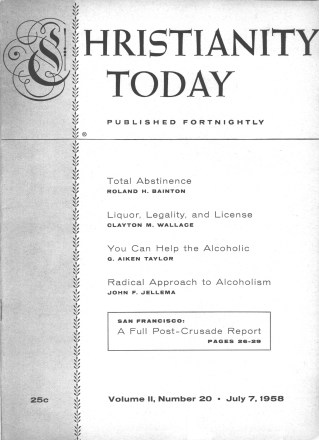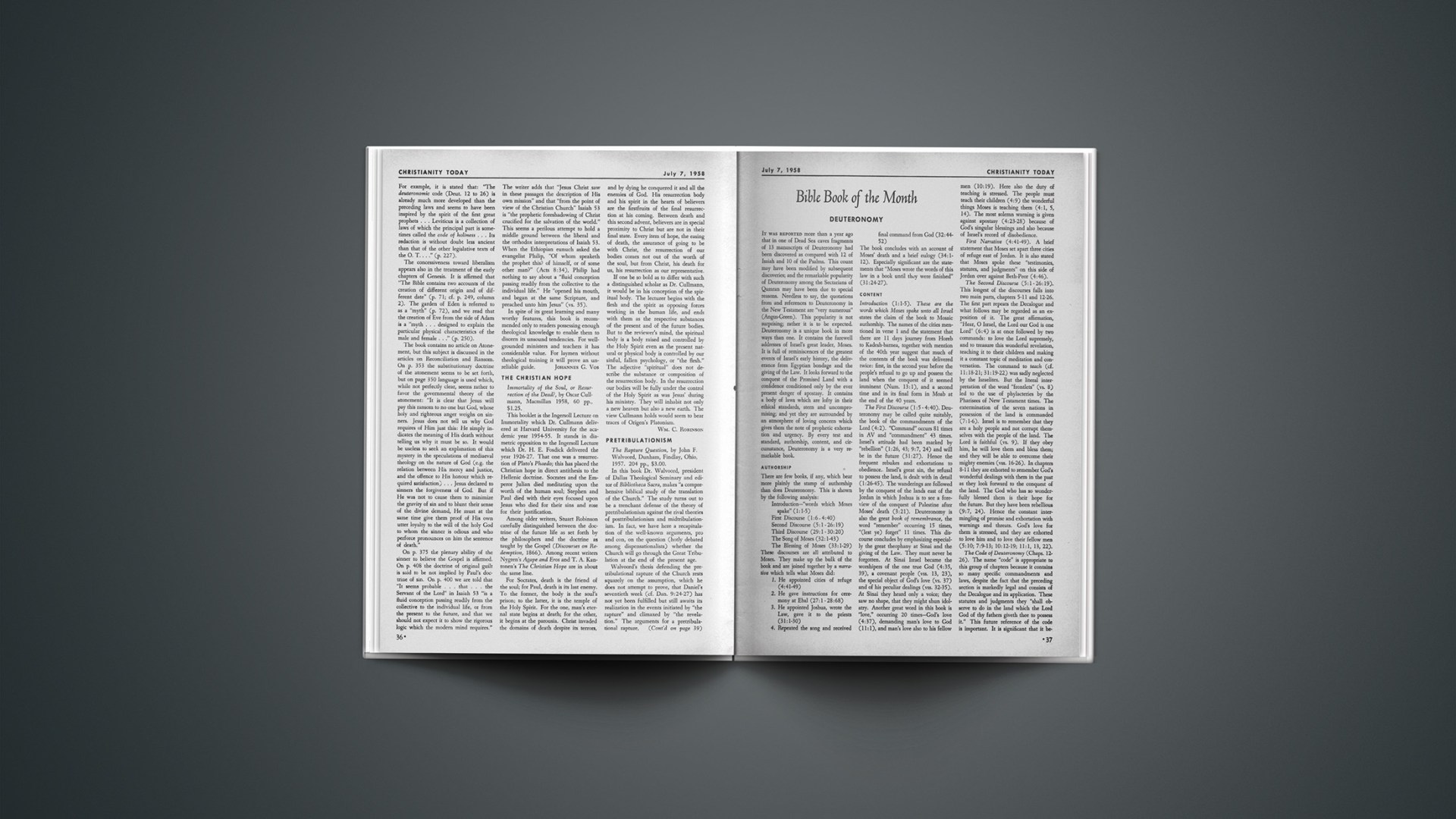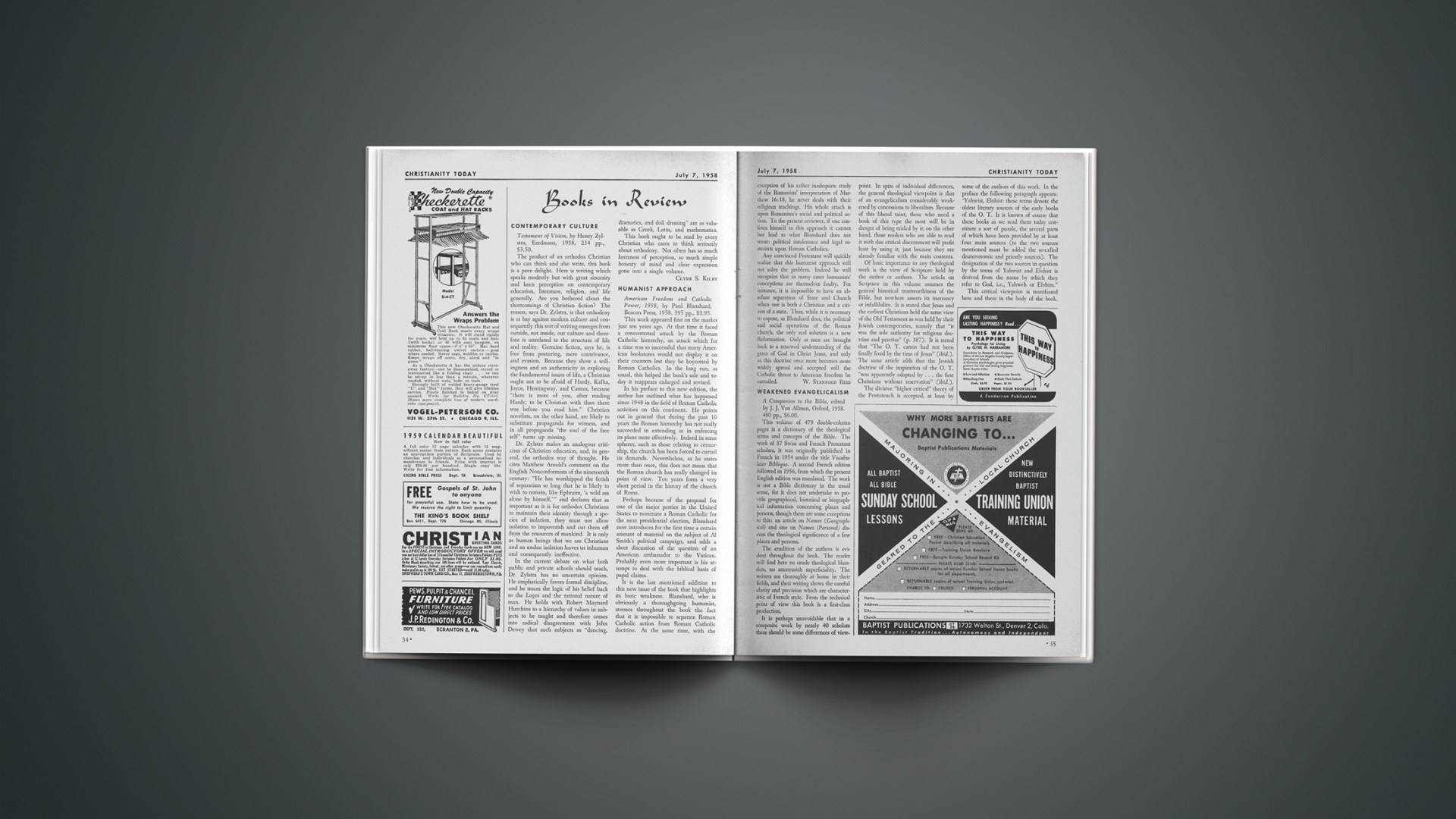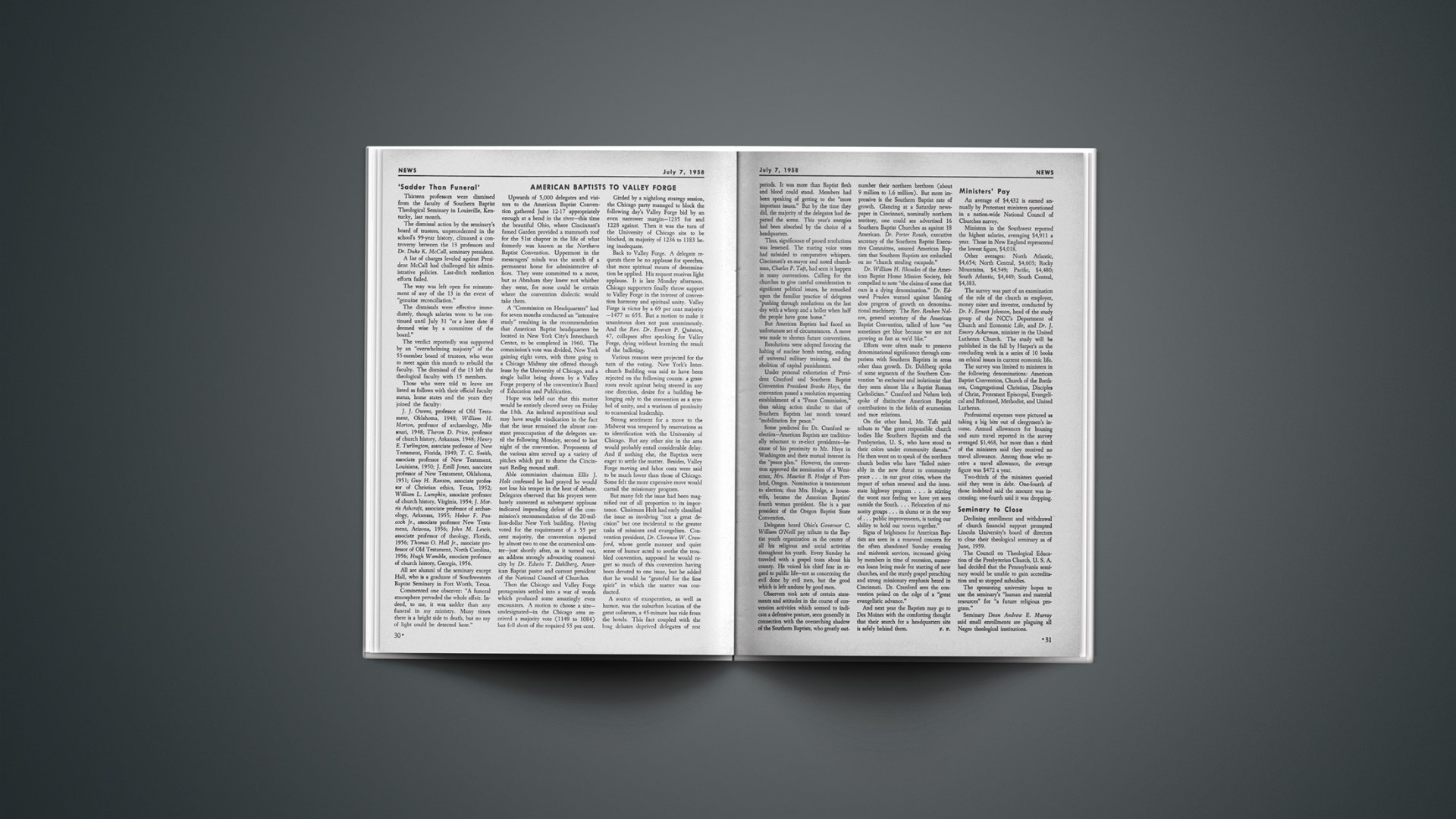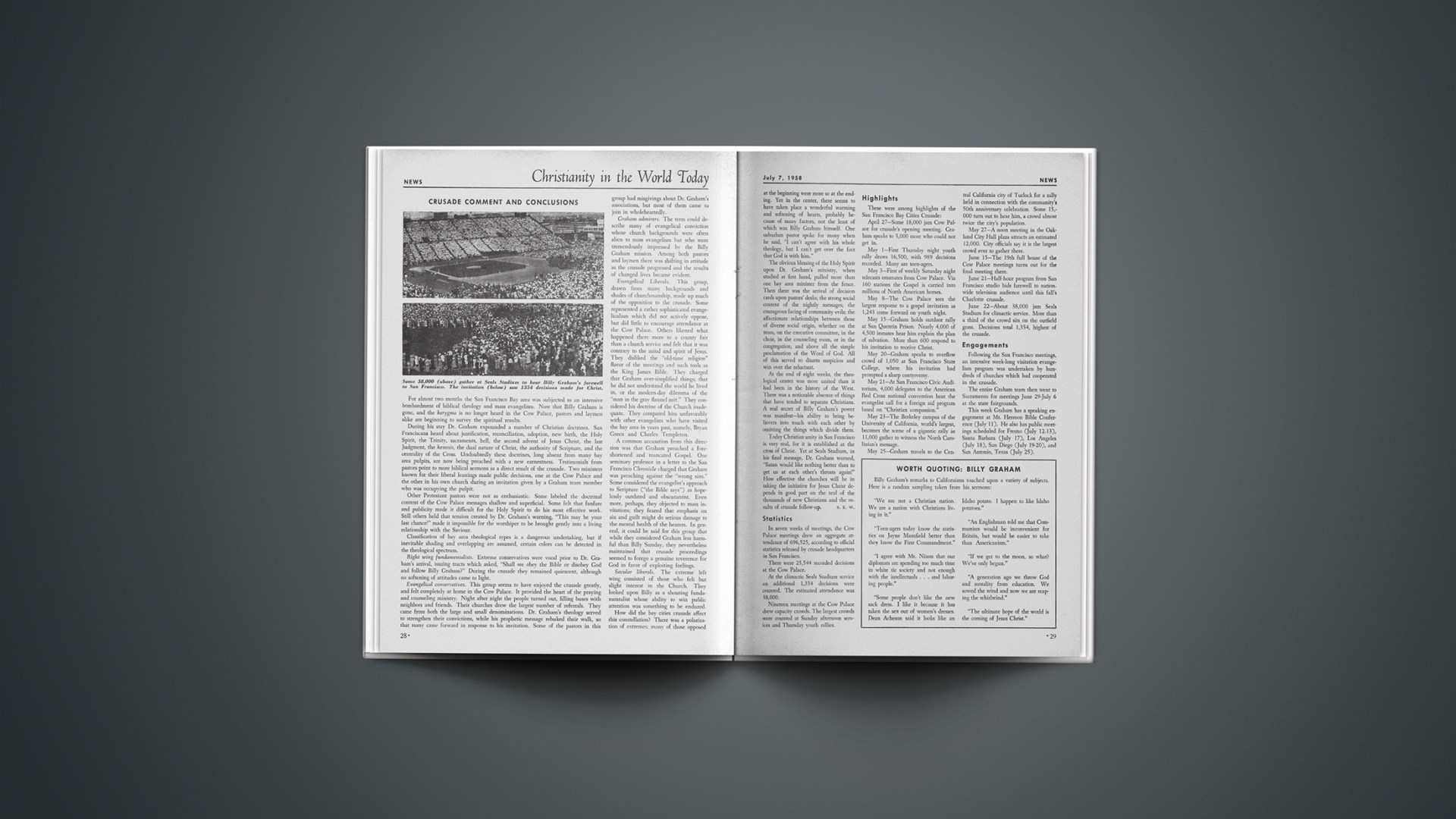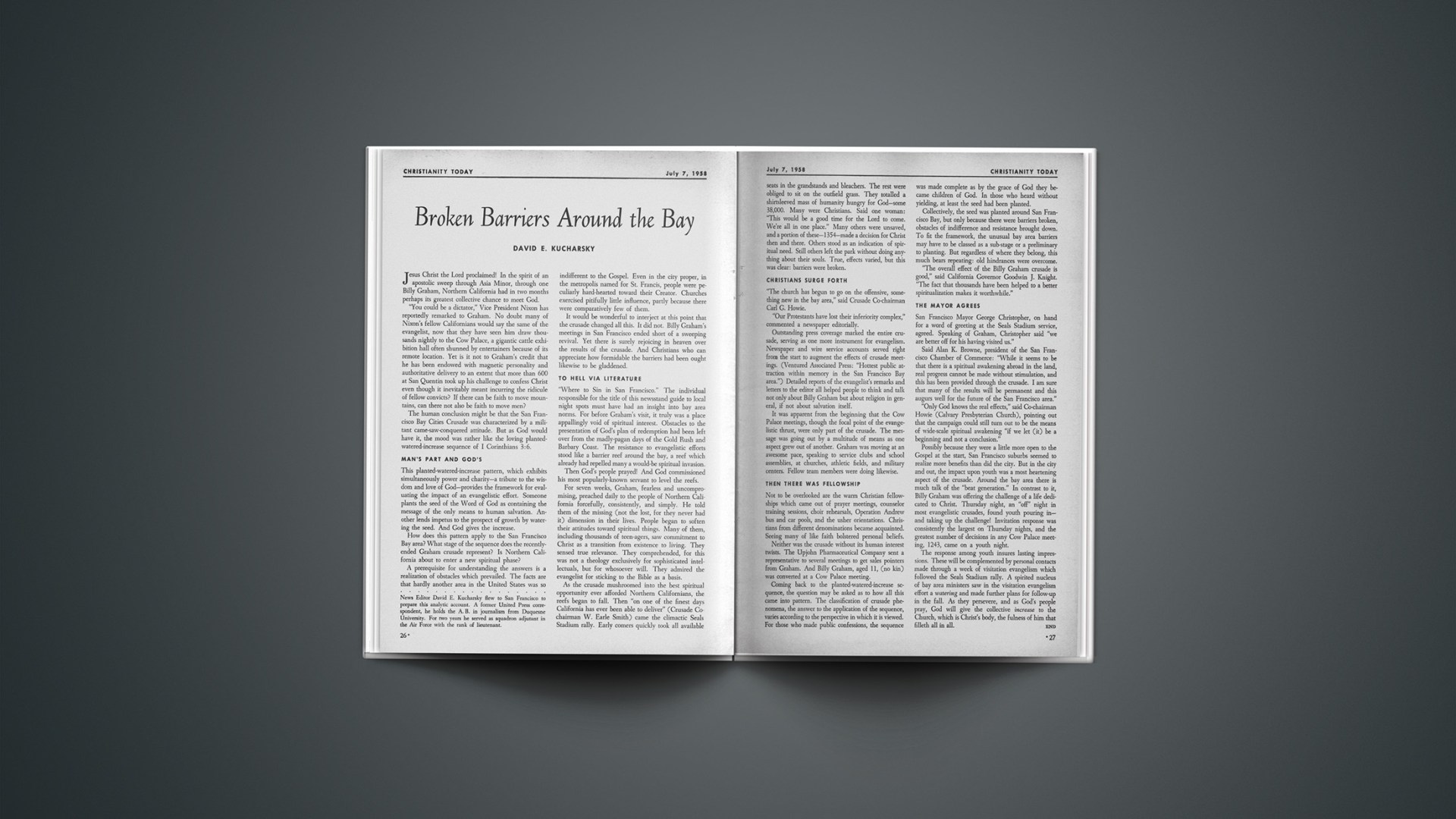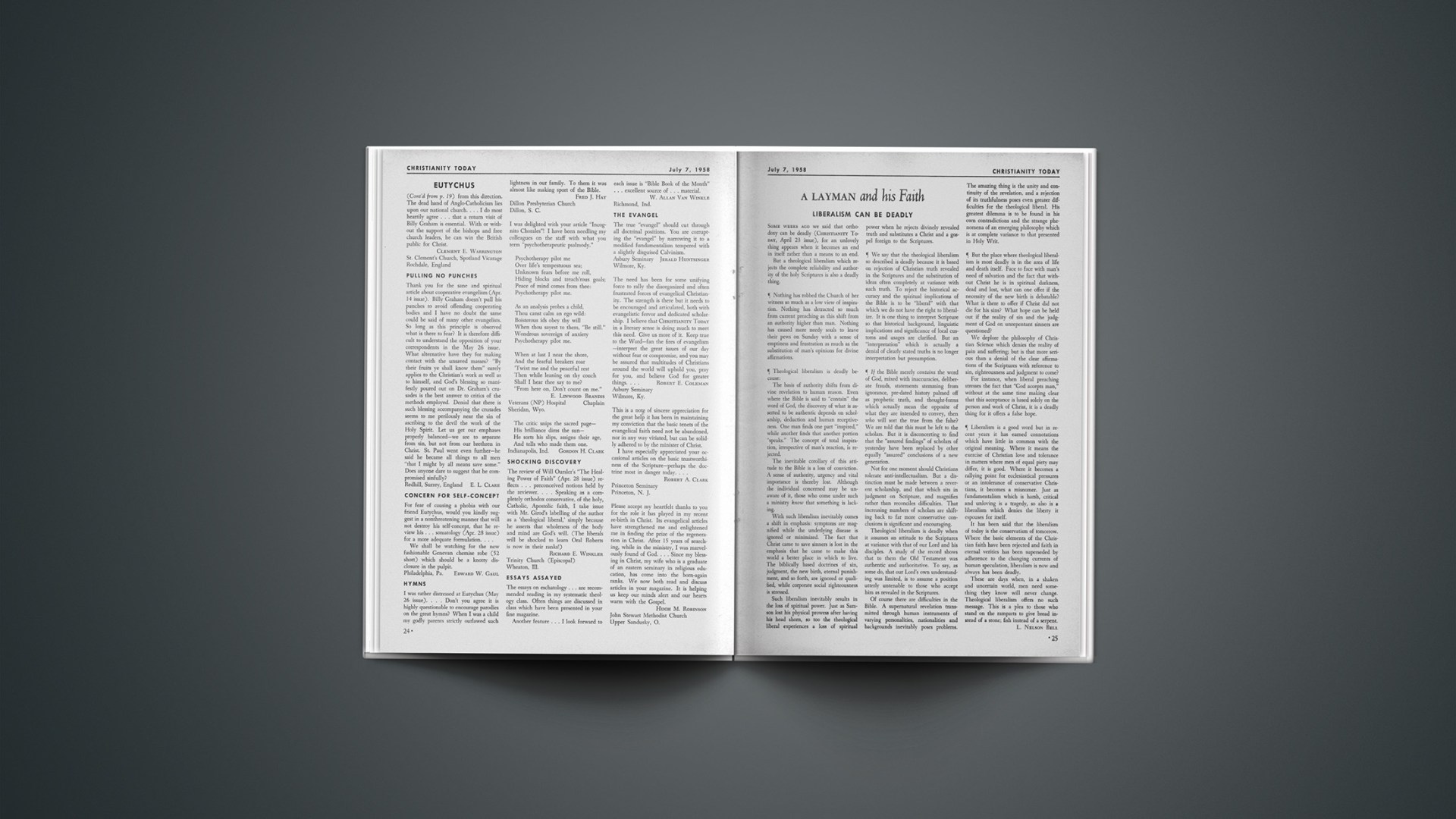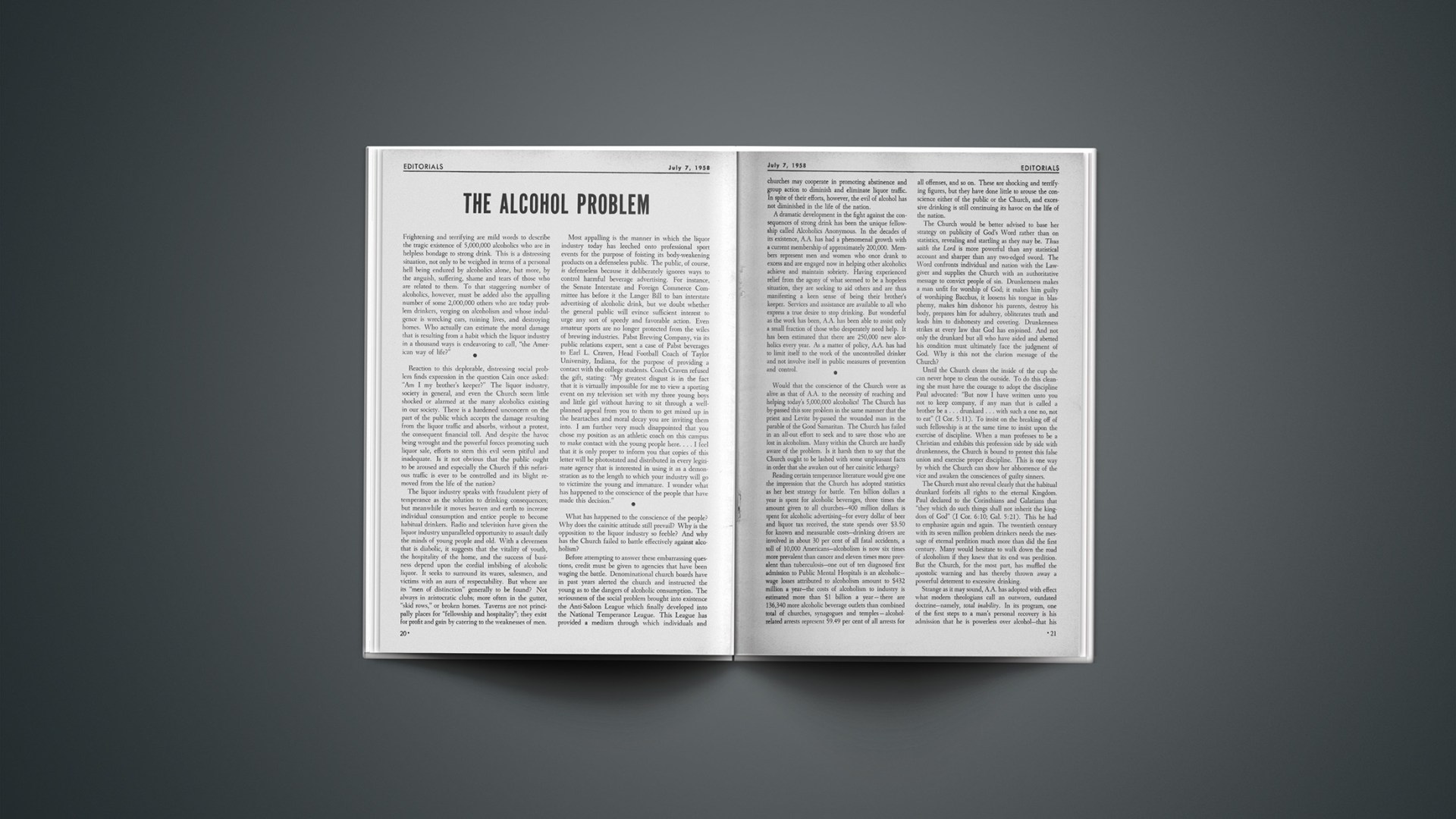During the next twelve months or so the centenary of “Darwinism” will be attracting a considerable amount of attention and there are already indications that the celebration of this centenary will not disclose a situation of complete harmony within the ranks of the scientists. It is a subject in which the theological world can hardly fail to be deeply interested.
Last May 21st the London Times published a mildly satirical letter from Dr. H. Graham Cannon, F.R.S., Professor of Zoology in the University of Manchester. He referred to the recent appearance in the magazine Endeavour of “a laudatory article in praise of Charles Darwin” in which Sir Gavin de Beer, F.R.S., who is Director of the British Museum (Natural History), stated that “new species have been artificially produced in the laboratory,” and requested that the author give “chapter and verse for this remarkable achievement,” adding that at the same time “it would be useful if he would tell us exactly what he means by the word ‘species,’ ” since “it is one of those little points which Darwin omitted to define.” As Sir Gavin had also written that the French zoologist Lamarck had brought the subject of evolution into disrepute by the “fanciful nature” of his views, Professor Cannon invited him to “give us any examples of ‘what Lamarck really said’ of this nature which cannot easily be beaten by Charles Darwin in his more exhilarating flights of fancy.”
Sir Gavin de Beer’s reply, printed the following day, claimed that certain new botanical species have been produced under experimental conditions, but failed to comply with Professor Cannon’s request for a definition of the term “species.” It concluded with the following categorical assertion: “Disparaging remarks about Darwin are best refuted not by any words of mine but by the past 40 years’ research in laboratory and field, which has proved beyond the possibility of error that natural selection of random variations has been the chief factor in evolution.” In this statement two things are worthy of remark: (1) that the theory of evolution is treated unconditionally as a fact which admits of no doubt; and (2) that the evolutionary process and the ordered system of nature it has (ex hypothesi) produced are built upon a foundation of chance, not design or purpose.
In so speculative a field, however, claims like the above that affirm “proof beyond the possibility of error” are more easily uttered than justified. They certainly do not represent the unanimous judgment of scientists on the question of evolution. Perhaps the most remarkable recent expression of discontent with Darwinism from within the scientific camp is to be found in the introduction to the latest edition of no less a volume than Darwin’s The Origin of Species in the Everyman’s Library (published by J. M. Dent and Sons, London, and E. P. Dutton and Co., New York, 1956). This introduction is written by Dr. W. R. Thompson, F.R.S., who is Director of the Commonwealth Institute of Biological Control, Ottawa. “I am not satisfied,” he says, “that Darwin proved his point or that his influence in scientific and public thinking has been beneficial.” He explains that he could not content himself “with mere variations on the hymn to Darwin and Darwinism that introduces so many textbooks on biology and evolution,” and that he is well aware that his views “will be regarded by many biologists as heretical and reactionary.”
Dr. Thompson complains that in the argumentation used by evolutionists “personal convictions, simple possibilities, are presented as if they were proofs, or at least valid arguments in favour of the theory.” Darwin, he reminds us, “did not show in the Origin that species had originated by natural selection; he merely showed, on the basis of certain facts and assumptions, how this might have happened, and as he had convinced himself he was able to convince others.” But, he points out, “the long-continued investigations on heredity and variation have undermined the Darwinian position. We now know that the variations determined by environmental changes—the individual differences regarded by Darwin as the material on which natural selection acts—are not hereditary.”
As for mutations, the main straw at which contemporary evolutionists clutch, they are not adaptive; indeed, “in general, they are useless, detrimental, or lethal.” Dr. Thompson quotes Emile Guyénot’s criticism of the explanation of evolution as the result of chance mutations in the genetic structure, as follows: “It is impossible to produce the world of life where the dominant note is functional organization, correlated variation and progression, from a series of random events.” Arguments founded upon the supposition that certain structures or organs are rudimentary or vestigial, and upon the so-called “biogenetic law” according to which the development of the embryo is said to recapitulate an animal’s evolutionary ancestry, receive short shrift in this essay.
The taxonomic system, whereby organisms are classified, presents, as Dr. Thompson points out, “an orderly arrangement of clear-cut entities which are clear-cut because they are separated by gaps.” These gaps are not explicable on the evolutionary theory. This is the case also with fossils, for investigation has revealed “a remarkable absence of the many intermediate forms required by the theory.” Dr. Thompson charges that “the modern Darwinian paleontologists are obliged, just like their predecessors and like Darwin, to water down the facts with subsidiary hypotheses which, however plausible, are in the nature of things unverifiable.” Even more serious is his verdict that “the success of Darwinism was accompanied by a decline in scientific integrity.” The doctrine of evolution by natural selection has, further, been associated with the decline of belief in the supernatural and the decline of Christianity, and the biblical account of creation has been abandoned for a view which, despite the evidence in nature of finality and design “and, therefore, of an intelligent providence,” ascribes all to chance.
“The general tendency to eliminate, by means of unverifiable speculations, the limits of the categories Nature presents to us, is,” Dr. Thompson declares, “the inheritance of biology from The Origin of Species. To establish the continuity required by theory, historical arguments are invoked, even though historical evidence is lacking. Thus are engendered those fragile towers of hypotheses based on hypotheses, where fact and fiction intermingle in an inextricable confusion.”
These are strong words. But theologians and educationists, no less than scientists, must give serious attention to strictures of men like Dr. Thompson and to re examine the whole matter candidly.


